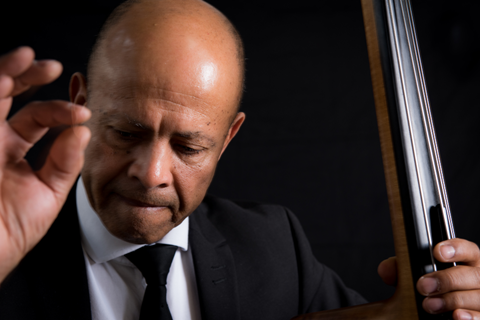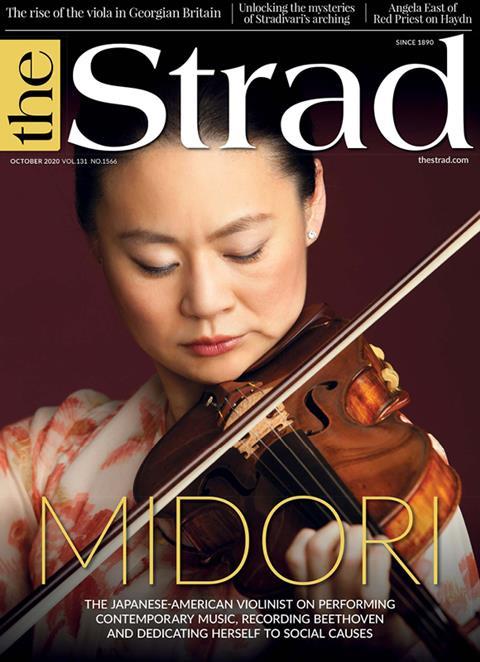Masterclasses should be special forums in which great artists impart the insight and knowledge they have acquired over a lifetime, writes double bassist Leon Bosch

This article is published in the October 2020 issue of The Strad.
Is the masterclass past its prime? Anecdotal evidence suggests that attendance, even at some high-profile events, is less than it might be. This is particularly evident when maestros pontificate about music that they themselves might never have performed. Despite this, the masterclass has become big business. There is nowadays a surfeit of offerings worldwide, with even recently qualified graduates joining the fray, leading to questions about what the ‘master’ in ‘masterclass’ really means. So, what ought a masterclass deliver to its participants and its audience?
Masterclasses were until relatively recently broadcast on mainstream television, presumably because the values maestros embodied were of relevance not only to musicians, but to society at large. They had something to teach everyone, about music, about life, and about the value of music for human expression. Day-to-day teaching is primarily concerned with the acquisition of technical facility and musical knowledge, but the currency of the masterclass is wisdom.
The maestro tasked with imparting such wisdom should personify instrumental and pedagogic virtuosity, and be as meticulously prepared for the masterclass as for a public concert. They should have a commanding grasp of music history, extensive personal experience performing the repertoire, an exhaustive understanding of the technical and musical challenges unique to the music on offer, an array of possible solutions and, most critically, a detailed understanding of all other interpretative possibilities. In short, all-encompassing knowledge.
Empty rhetoric is instinctively recognised as worthless by students, and that risks undermining the credibility of masterclasses. Great teachers always have an instrument in their hands – as the violinist Alan Loveday declared, while many of his colleagues held forth about music from the safety of an armchair, he could demonstrate. Human beings learn most effectively by example, and demonstration remains the most persuasive tool. Ruggiero Ricci and Yehudi Menuhin both agreed that their legendary teacher Louis Persinger demonstrated, and they imitated. It is important, therefore, that the maestro has every single note under the fingers.
Watch: Lockdown conversation with Leon Bosch
Read: Students should practise Bach’s Cello Suites with Schumann’s piano accompaniments
Read: Masterclass: Leon Bosch on Dittersdorf’s Double Bass Concerto no.2, first movement
However onerous the maestro’s responsibilities might appear, the student’s duties are no less demanding. Both teaching and learning at this exalted level are privileges, and certain basic criteria ought to be fulfilled. The level of learning ought to transcend the mere acquisition of competence. If too many basic problems remain in need of attention, the masterclass runs the risk of turning into a regular lesson – devaluing its currency and disappointing both student and audience. The acquisition of knowledge ought to take place in the practice room, during the weekly lesson, and in daily musical interactions. The masterclass exceeds the remit of the weekly lesson, and should be a special event, as much for the benefit of the audience as it is for the student.
The maestro enjoys the power to engage the audience, and to transform the masterclass from what could otherwise be a confidential interaction, with the audience as passive onlookers. The masterclass audience will inevitably include other well-informed instrumentalists who will exercise an exacting level of scrutiny.
Responding to challenges from the maestro demands great intellectual and technical flexibility of the student, and if the maestro sensitively identifies some strengths and weaknesses in the performance, these should provide the basis for constructive analysis and imaginative solutions. Perfection is a paralysing illusion, but the maestro’s words of wisdom can, at the very least, inspire commitment to eternal learning and growth in the pursuit of total freedom of artistic expression.
-
This article was published in the October 2020 Midori issue
The Japanese-American violinist on performing contemporary music, recording Beethoven and dedicating herself to social causes. Explore all the articles in this issue.
More from this issue…
- Japanese-American violinist Midori
- Ensemble Diderot’s ‘cities’ project
- Lutherie in the time of Covid-19
- Tessa Lark’s ‘Stradgrass’ album
- The late Georgian viola in Britain
- Solving the mysteries of Cremonese archings
Read more playing content here




































No comments yet